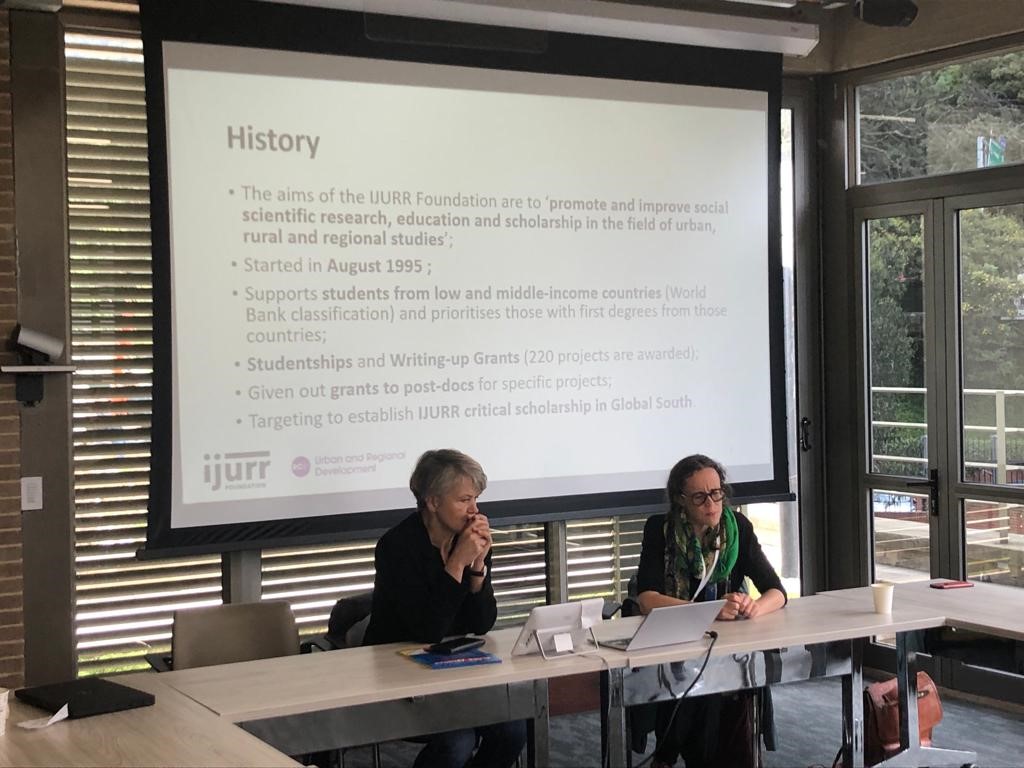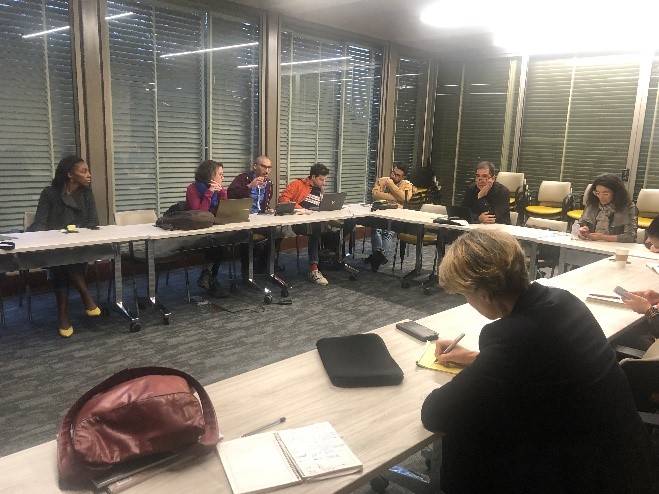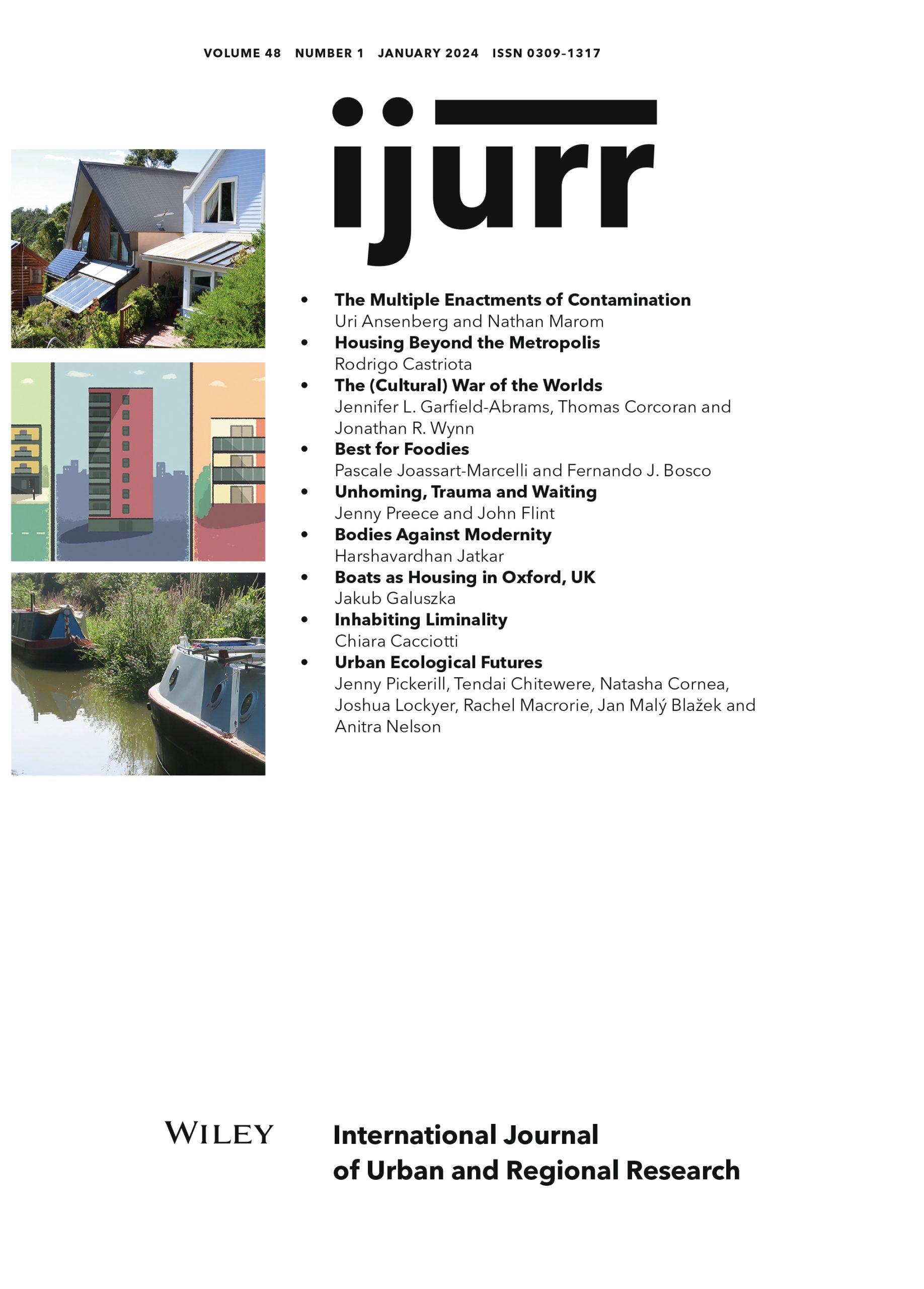
Figure 1: Ciudad Bolivar, from the cable bus during a field visit. Photo Julie-Anne Boudreau, 19 November, 2022.
With the financial support of the IJURR Foundation, on November 16 and 18, 2002, IJURR Trustee Julie-Anne Boudreau, RC21 President Talja Blokland, and IJURR Board member Maria José Alvarez-Rivadulla gave a Writing and Publishing Workshop for young urban scholars in the Universidad de los Andes, Bogota. They were supported by a team of professors from the Universidad de los Andes: Sergio Montero, Friederike Fleischer, and Adriana Hurtado (IJURR Foundation alumni).
For academics whose native language is not English, publishing in high-impact journals in English has become an additional obstacle in advancing their careers and a constant source of stress, particularly for younger scholars. Indeed, Latin American research on cities and regions occurs mainly in Spanish and Portuguese, which makes it difficult to engage in dialogues with the academic discussions that take place in English-speaking journals. The goal of this workshop was to foster such dialogue by improving theoretical production in English about cities and regions in Latin America, improving the writing and publishing skills in English for participants, and improving the connections of the IJURR-IJURR Foundation-RC21 community with local organizations such as ACIUR.

Figure 2: La Candelaria neighbourhood, Bogota. Photo Julie-Anne Boudreau, 20 November, 2022.
The first session consisted of an exchange on the basis of our experience navigating the world of English-speaking publishing from both the inside (RC21, IJURR Board, IJURR Foundation) and the outside (we learned to write in English, while living and working in other languages). We began with each of the participants introducing themselves and their writing projects. We followed with a discussion of the political economy of publishing in English, touching themes such as the ecosystem of journal publishers, how high impact factor journals work (flow of submissions, rejection, reviews), and publishing strategies (how to decide where to submit). We also explained the position of IJURR in the field of urban studies and the relation between RC21 and IJURR, and its historical legacy. Julie-Anne and Talja shared experiences of reviewing papers, and suggestions on what reviewers and editors tend to look for with a first submission.


The second session consisted of hands-on writing tips on the basis of writing samples submitted by the participants. One of the main problems faced by Latin American researchers is that even before sending their paper for translation into English, it is not written in a way that is usually accepted in English-speaking journals. How to structure the paper, relate the theoretical framework with the empirical demonstration, write an abstract, etc. are elements that are culturally very different. We focused in particular on writing a good abstract and discussing the importance of the first paragraphs of the paper.

There were 12 registered participants, graduate students or young professors from various Colombian and Latin American universities, in addition to the international and local instructors. The exchanges were very useful, for participants as much as for instructors, as we never really take the time to reflect on our writing practices.
We were happy with the results and students were as well, although more spaces like this workshop are needed for real results on more articles reaching publication. One of the participants, Samuel Nossa, PhD student from the Interdisciplinary Center for the Study of Development at the Universidad de los Andes said:
“The publishing workshop was a collaborative learning space in which a group of experienced publishers and scholars shared their experiences and recommendations with us novice scholars. With generosity and camaraderie, they shared their experiences on the craft of writing, the political economy of publishing, and the best ways to communicate with peers through writing. In an academic environment where publications are both a means of dissemination and a performance measurement system, novice academics face a great challenge to get started on that path. These spaces allow us to begin to walk our path with better tools, to prepare ourselves for frustration and adaptation, and to learn together with others who have walked our same path.”

Figure 3. Ciudad Bolívar seen from its Parque Mirador Ilimani. Photo María José Álvarez-Rivadulla during a fieldtrip following the workshop and the ACIUR conference.
